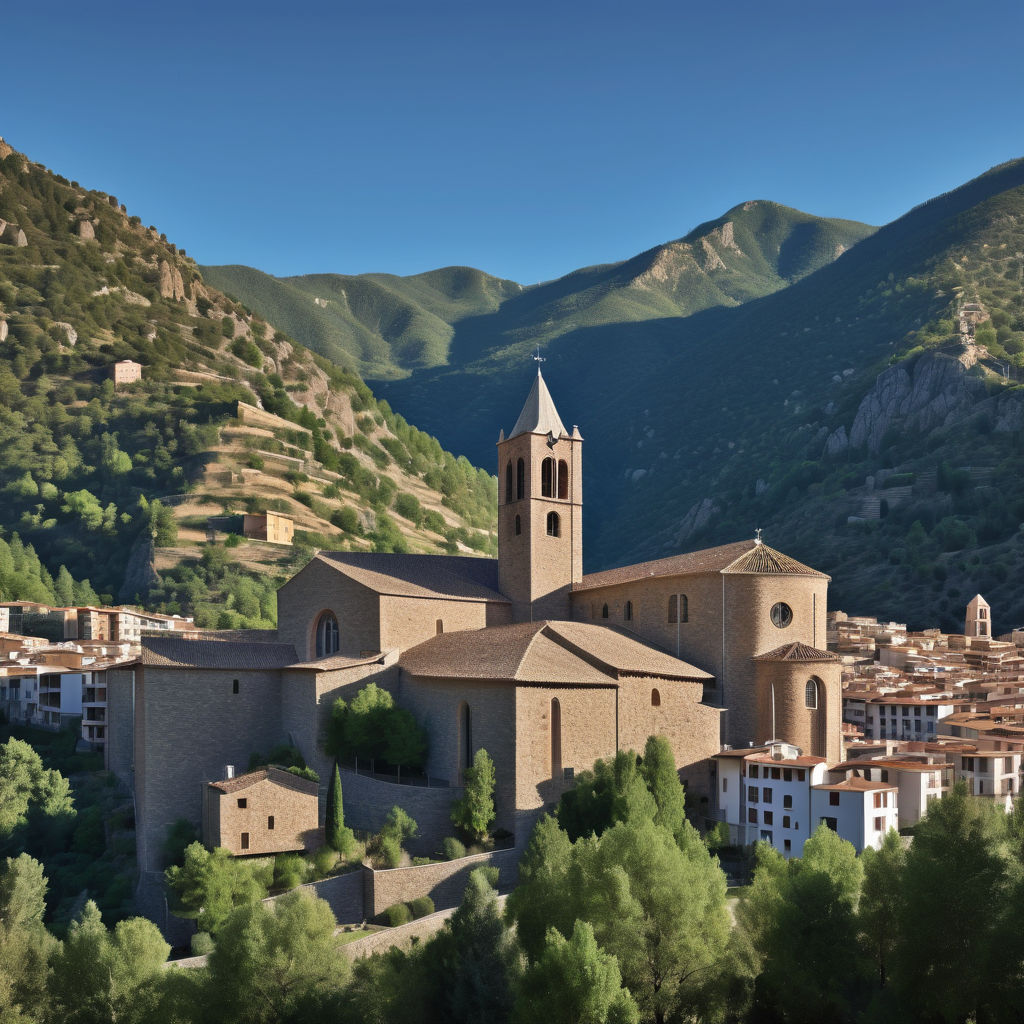Introduction to Andorra: A Blend of Catalan, French, and Unique Traditions
Discover Andorra: Embracing Diversity in the Pyrenees

Introduction to Andorra
Nestled in the eastern Pyrenees mountains between France and Spain, Andorra is a small, landlocked principality renowned for its stunning landscapes, ski resorts, and duty-free shopping. The capital city, Andorra la Vella, is the highest capital in Europe and serves as the cultural and economic hub of the country. Andorra's rich cultural heritage is a blend of Catalan traditions, French influences, and its own unique history, making it a fascinating destination for travelers and a unique place to live. With a population of around 77,000 people, Andorra is one of the smallest countries in Europe. Despite its size, it boasts a vibrant culture characterized by traditional festivals, music, dance, and cuisine. The country's official language is Catalan, but Spanish, French, and Portuguese are also widely spoken, reflecting the diverse makeup of its residents and visitors.
Cross-national and Cross-cultural Understanding
Andorrans are generally open and welcoming towards other cultures, a trait that has been fostered by the country's historical ties and geographic position between France and Spain. The country’s economy relies heavily on tourism, which has necessitated a broad acceptance and understanding of various cultures. This openness is evident in the numerous cultural exchanges and international partnerships that Andorra maintains. Cultural exchanges are a significant aspect of life in Andorra. The country hosts a variety of festivals and events that celebrate both local and international traditions. The Andorra la Vella International Music Festival, for instance, attracts artists and audiences from around the world, promoting cultural exchange and mutual understanding. Educational programs in Andorra emphasize global awareness and cross-cultural understanding. Schools incorporate multilingual education, with students learning Catalan, Spanish, French, and English. Additionally, the University of Andorra collaborates with institutions from other countries, facilitating student and faculty exchanges that enrich the educational experience and foster global connections.
Interactions and Social Dynamics
Interactions between Andorrans and foreigners are typically characterized by friendliness, respect, and a strong sense of community. Social behaviors in Andorra reflect a blend of Catalan warmth and European formality, emphasizing politeness and hospitality. Communication styles in Andorra are generally direct yet courteous. Multilingualism is a significant asset in facilitating interactions, with many Andorrans fluent in multiple languages, including Catalan, Spanish, French, and English. This linguistic proficiency helps bridge cultural gaps and fosters smoother interactions between locals and visitors. Cultural norms in Andorra place a strong emphasis on family values, respect for tradition, and community involvement. These norms create a welcoming and inclusive atmosphere for foreigners, who often find it easy to integrate into the local way of life. Public displays of affection are common and accepted, reflecting the country’s relaxed social attitudes.
Views on Dating and Relationships
Attitudes towards dating and relationships with foreigners in Andorra are generally positive. Andorrans appreciate the cultural diversity that international relationships bring and recognize the personal growth opportunities they offer. However, cultural expectations and traditions do play a role in shaping these views. Family involvement is significant in relationships in Andorra, with elders often playing a crucial role in the approval process. Traditional customs emphasize respect, patience, and the gradual building of trust in relationships. While modern dating practices influenced by global trends are becoming more common among younger generations, traditional values still hold sway in many communities.
Marriage and Family
Marrying a foreigner in Andorra involves navigating both legal and social considerations. Legally, the country has clear regulations governing marriage, including residency requirements and the need for proper documentation. Socially, cross-cultural marriages are generally accepted, though couples may face challenges related to cultural differences and integration. Familial acceptance is a key factor in cross-cultural marriages. Andorran families can be protective, and gaining their approval is often essential for the relationship's success. However, the diverse cultural landscape of Andorra means that many families are already familiar with and accepting of different cultural backgrounds, which can facilitate smoother integration for foreign spouses. Trends in cross-cultural marriages reflect Andorra's open and inclusive society. Many Andorrans who travel abroad for education or work form relationships with individuals from various cultures, bringing back diverse customs and traditions that enrich the local community.